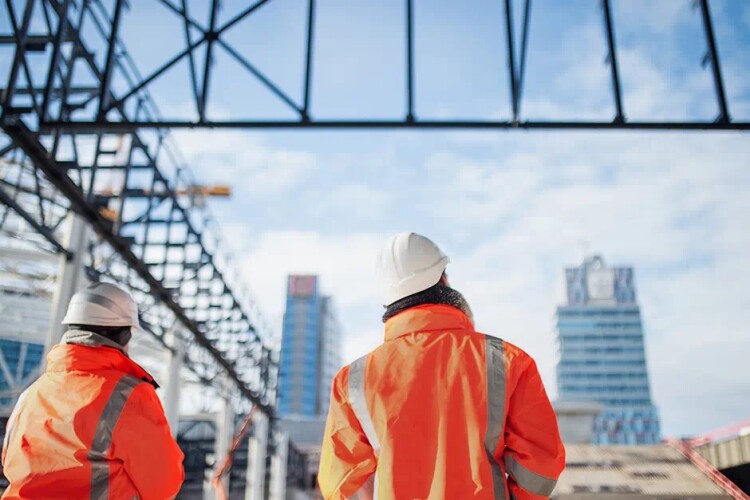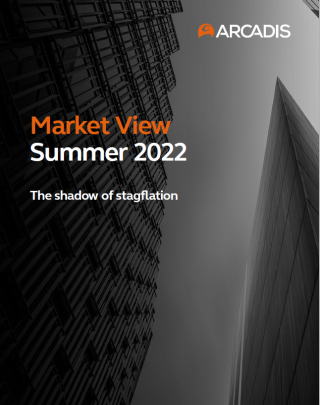Just 12 weeks ago Arcadis was saying that it expected tender price inflation to peak at 5% for building work in 2022 and reach 6% for infrastructure work.
It has now reconsidered that analysis and says that tender price inflation will be between 8% and 10% this year, depending on the project.
The leap is attributed to the markets for energy and materials severely disrupted by Russia’s invasion of Ukraine.
Arcadis says that the Ukraine war is single-handedly responsible for adding a further 3-5% to the costs of most construction projects. “For projects with a greater exposure to the steel market, including the logistics sector and some infrastructure sectors, the extra inflation will be even higher, ranging from 5 to 8%,” it says. “This means that construction inflation is likely to reach double figures on some construction projects this year.”
It currently expects inflationary pressures on building projects to peak at 8-10% (both in London and the regions) and at 10% for infrastructure projects.
The analysis is within Arcadis’ Summer 2022 Market View, which is subtitled The shadow of stagflation, alluding to fears that inflation could lead to the economy stagnating. The quarterly analysis of the UK construction market looks across sectors and regions to estimate a tender price forecast to help financial decision making for projects and programmes.
Development headwinds associated with labour and product price and availability continue to challenge the industry, although there are some positive developments, including a 4% increase in the size of the workforce during 2021 and the easing of supply shortages associated with timber and some other construction products.
But these developments have been overshadowed by the effects of the Ukraine invasion, even though materials sourced from Ukraine barely account for 1.2% of the value of UK construction imports. The broader impact will be felt through rocketing energy costs, which disproportionately affect the construction materials supply chain. Prices are expected to remain high until the UK and European energy markets are retooled to be less dependent on Russian gas and oil.
Arcadis warns that such inflation is likely to lead to work slowing down. Higher prices and difficulties in reaching terms that are acceptable to clients, contractors and funders mean that an increasing number of projects are being delayed, it says.
Looking further ahead, with growing evidence of slowdown in the market, Arcadis believes that inflation will come back down to 2-4% in 2023.

From 2024 onwards, we retain our view that construction prices will increase faster than background inflation as continuing scarcity of labour maintains pressure on contractors’ prices. As CPI returns to around 2%, construction prices will rise much faster, at 4-5%.
The revised Arcadis forecast closely matches that of property developers British Land, which last month forecast construction inflation of 8-10% for 2022 and 4-5% for 2023 and 2024.
“We expect the rate of increase to moderate and capacity to emerge as some development projects in the market are deferred or cancelled,” said British Land chief executive Simon Carter. [See our report here]
Arcadis head of strategic research Simon Rawlinson said: “Shockwaves from the Ukraine War and the wider cost of living crisis combined to threaten the return of stagflation, the potent combination of low growth and high inflation last seen in the 1970s. This has resulted in the jump in our tender price forecast for 2022 to 8-10%. How contractors respond to a slowing market will determine how quickly price growth returns to a more sustainable level.”
Arcadis’ Summer 2022 Market View – an extract
“There is little doubt that the disruption caused by the Ukraine War has created ripples in the UK construction market. Whilst some sectors like the private housing market can rely on a deep pool of demand, other sectors where viability is more of a challenge are seeing delays and cancellations.
“At present, there is very little data to support the slowdown hypothesis. The RIBA Future Trends Workload Survey remains in positive territory at +5, with only 18% of respondents expecting workload to decrease. Even the home renovation market still appears in robust health despite soaring materials prices, with builders merchants like Travis Perkins still reporting growth in both retail and wholesale markets.
“We are seeing early signs of there being fewer opportunities for contractors. Furthermore, these are proving harder to convert into live projects due to issues of pricing and risk profile. Glenigan’s latest Construction Review for April 2022 hints at a deterioration in the market, with a significant decline in the number of project starts, even as both the planning pipeline and value of main contract awards continue to increase at a slowing pace.
“With signs that both main contractors and early trades have gaps in their order books for 2023, the market is likely to become more competitive. This does not mean that prices will fall. Continuing high energy prices and a tight labour market will see to that. However, we do anticipate that there will be some scope for more competitive pricing of on-costs and risk allowances, particularly if clients are more flexible in their approach to risk transfer through well-established means such as price fluctuations and early materials procurement.”
Got a story? Email news@theconstructionindex.co.uk




